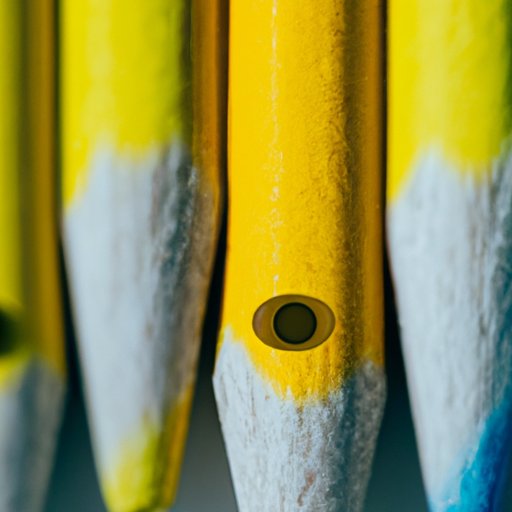Can We Separate the Art from the Artist?
When considering a piece of art, whether it be a painting, a piece of literature, or music, it’s natural to focus on the work itself. However, the artist behind the creation is often just as important. Can we separate an artist’s personal life, opinions, and behaviors from the work they produce? This is a question that has been debated for years, and there is no easy answer. In this article, we will explore the pros and cons of separating the art from the artist, analyze different cases, and consider the psychological implications at play.
Writing an Opinion Piece
When writing an opinion piece, it’s essential to make a claim and support it with evidence. In terms of separating art from the artist, one might argue that we can’t separate the two, as an artist’s personal life inevitably impacts their work. On the other hand, some may argue that art should be evaluated entirely on its own merits, regardless of the artist’s behavior.
In my opinion, it is impossible to separate an artist’s personal life from their work entirely, and that’s okay. While we may appreciate an artist’s work for what it is, understanding their background can add depth and context to the piece. That being said, we should also make an effort to evaluate art independently and not let outside factors influence our perceptions.
Profiling a Specific Artist
One of the most controversial artists when it comes to separating art from the artist is Woody Allen. Allen is known for his contributions to the film industry, including “Annie Hall” and “Manhattan.” However, he is also known for his personal life, including allegations of sexual assault. Allen has been critiqued for glorifying relationships between older men and younger women in his films, which many argue speaks to his own personal life.
When examining Allen’s work, it’s challenging to separate it from his behavior. One could argue that his personal life has influenced the themes of his films, but it does not invalidate the quality of the work. At the same time, it’s crucial to acknowledge the severity of the allegations against him and decide whether or not to support him and his work based on that information.
Comparing Different Cases
Another example of the intertwining of art and the artist is the case of musician R. Kelly. For years, allegations of sexual assault have followed the artist, leading to a pause in the artist’s career. However, many fans and artists have continued to listen to and collaborate with him despite the allegations.
On the other hand, we have seen instances where an artist’s personal life leads to a complete rejection of their work. For example, many have chosen not to listen to Michael Jackson’s music after allegations of child molestation were made public.
The difference in reactions to these cases shows that there is no clear answer to whether or not we can separate art from the artist. Whether or not to support an artist’s work is ultimately up to the individual, and different cases will elicit different responses.
Analyzing Works of Art
While an artist’s personal life may be relevant to the context of the work, it’s essential to analyze the artwork independently. For example, many admire the literary work of Ernest Hemingway, despite the allegations of his misogyny and abusive behavior. Regardless of the accusations against Hemingway, his work often explores complex themes and demonstrates beautiful prose.
It’s essential to evaluate a work of art in its entirety rather than immediately dismissing it based on the artist’s behavior. While the artist is responsible for the themes and messages conveyed in their work, the work can still be appreciated independently and analyzed on its own merits.
Exploring the Psychological Implications
Our desire to separate art from the artist may be influenced by several psychological factors. For example, we may feel the need to distance ourselves emotionally from an artist’s behavior. Alternatively, we may be drawn to an artist’s work because of our admiration for them as a person.
At the end of the day, it’s essential to recognize that our personal beliefs and values affect our perception of art. While we may not be able to separate an artist’s personal life from their work entirely, we can make an effort to evaluate each piece independently and not let outside factors cloud our judgment.
Conclusion
Separating art from the artist is a complex issue with no easy answer. While an artist’s background may be relevant to their work, we can still evaluate and appreciate art independently. Ultimately, whether or not to support an artist’s work is up to the individual, and different cases require different responses. Let us continue the conversation on this topic and recognize the complexity of separating art from the artist.
(Note: Is this article not meeting your expectations? Do you have knowledge or insights to share? Unlock new opportunities and expand your reach by joining our authors team. Click Registration to join us and share your expertise with our readers.)
